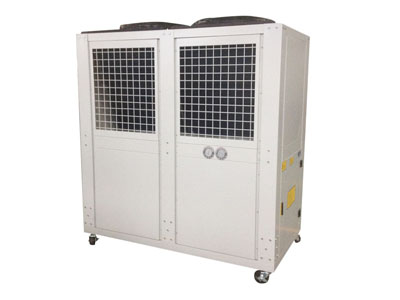- Home
- Products
- About Us
- News
- Project
- Video
- Soliutions/Oem/Custom
- Contact Us
Different cooling devices are available for achieving optimal process or ambient temperatures in commercial and industrial environments. Popular and readily available variants are chiller cooling systems (air-cooled chillers or water-cooled chillers) and heat exchangers.
While most heat conditioning systems work with a combination of chillers and heat exchangers, these cooling devices sometimes exist as stand-alone setups. This article will explain the differences between heat exchanger and chiller cooling systems.Get a quote.
The main difference between a heat exchanger and a chiller is in the design. While a chiller system has a refrigeration unit that cools its circulating chiller fluid, a heat exchanger lacks a refrigeration unit and achieves temperature regulation through direct fluid heat transfer.
A large number of chillers have been developed for a variety of industrial processes, including metal finishing, plastics and chemical processing, beverage manufacturing, pharmaceutical preparations and medical diagnostic systems. Different versions of water/air systems are currently available, including open-loop and closed-loop chiller models.
A chiller is a device that removes heat from a given process by directing chilled water through it. The chilled water used in a chiller is produced by using absorption and refrigeration cycles or by compressing the liquid from its evaporative form.
Understanding how a chiller works depends on its underlying cooling system.
Vapor compression
Heat absorption
A vapor compression chiller setup usually consists of a compressor unit that produces cooling by converting a heated vaporized refrigerant into its cooled liquid form. Vapor compression systems are usually installed with air-cooled, water-cooled or evaporative condensers.
Absorption chillers use cheaper, low-energy cooling units that direct the coolant through a heating process in a single-phase cooling cycle. These units consist mainly of water-based refrigerants using lithium bromide as the absorbent.

Air-Cooled Chiller

A variety of heat exchangers are available for various cooling processes. The following outlines the important key points to keep in mind for the operation and application of these heat exchange systems.
Heat exchanger cooler systems utilize devices that transfer heat through various fluids. Heat exchange coolers can use a coolant consisting of a mixture of air or liquids to remove the heat generated by the associated heating process.
A condenser can be considered a form of heat exchanger, as it is functionally similar to a cooler heat exchanger. While a heat exchanger can regulate the process temperature independently, a condenser is an integral part of a cooling system (water or air cooled) that functions to remove the heat generated by an industrial or commercial process.
Jiangsu Huazhao Refrigeration Equipment CO., Ltd. is a manufacturing enterprise focus on high quality industrial refrigeration equipment research and development, production and sales.
Our company various industrial chiller with competitive price include: Air cooled chiller; Water cooled chiller; Low temperature glycol/brine water cooled chiller; Heat pump hot water chiller; Maglev inverter centrifugal water chiller; Oxidation dedicated water cooled chiller. If you want to get more information about best industrial chiller wholesale, welcome to contact us.
Copyright © Water Cooled Chiller, Water Cooled Scroll Chiller Supplier China All Rights Reserved | Sitemap